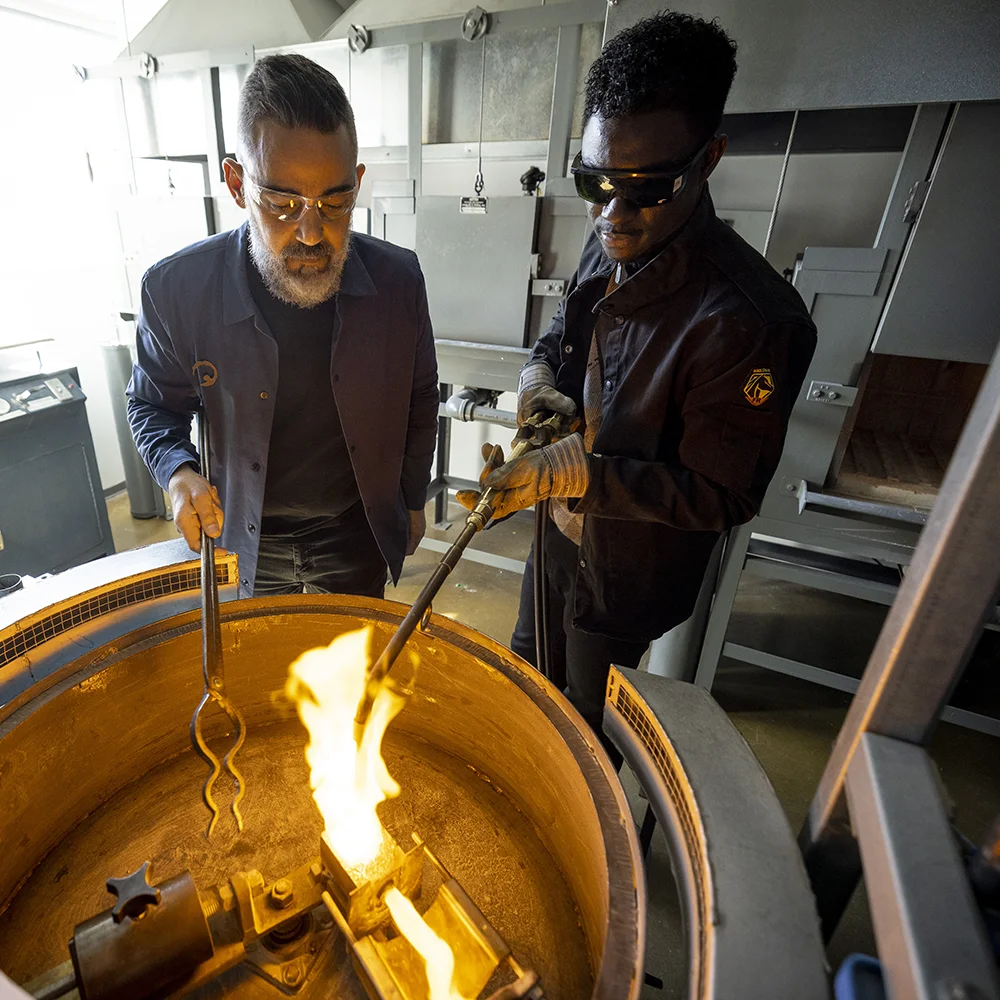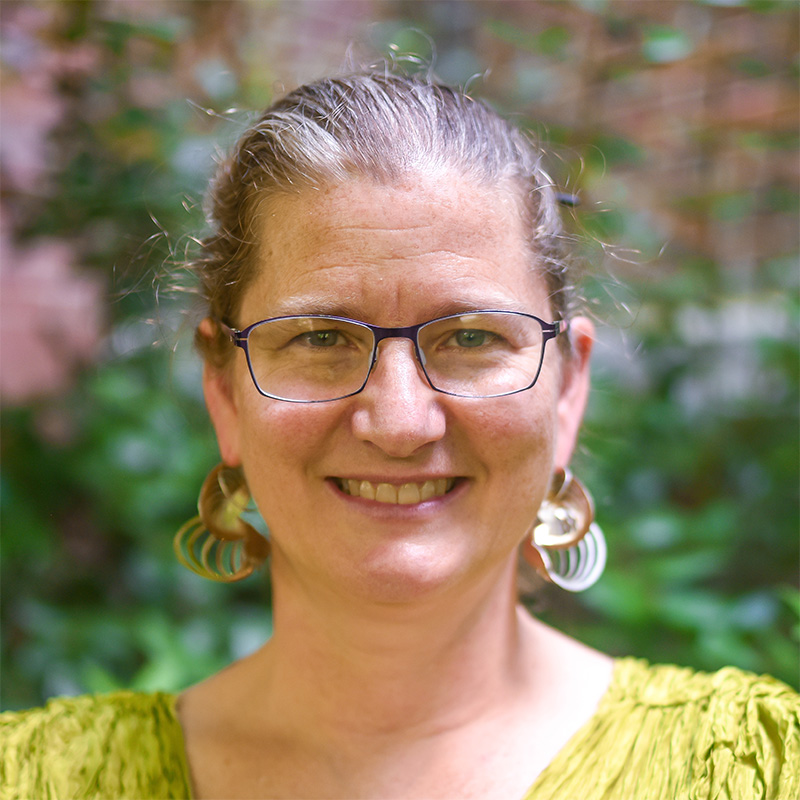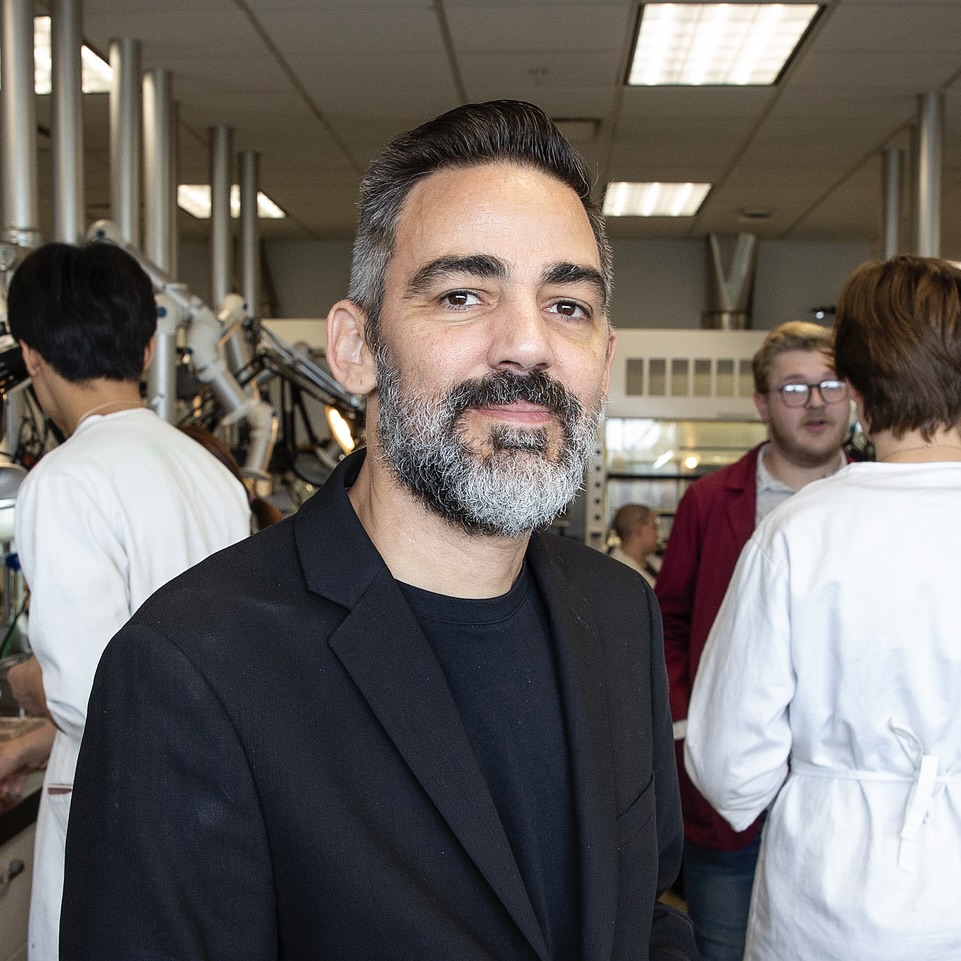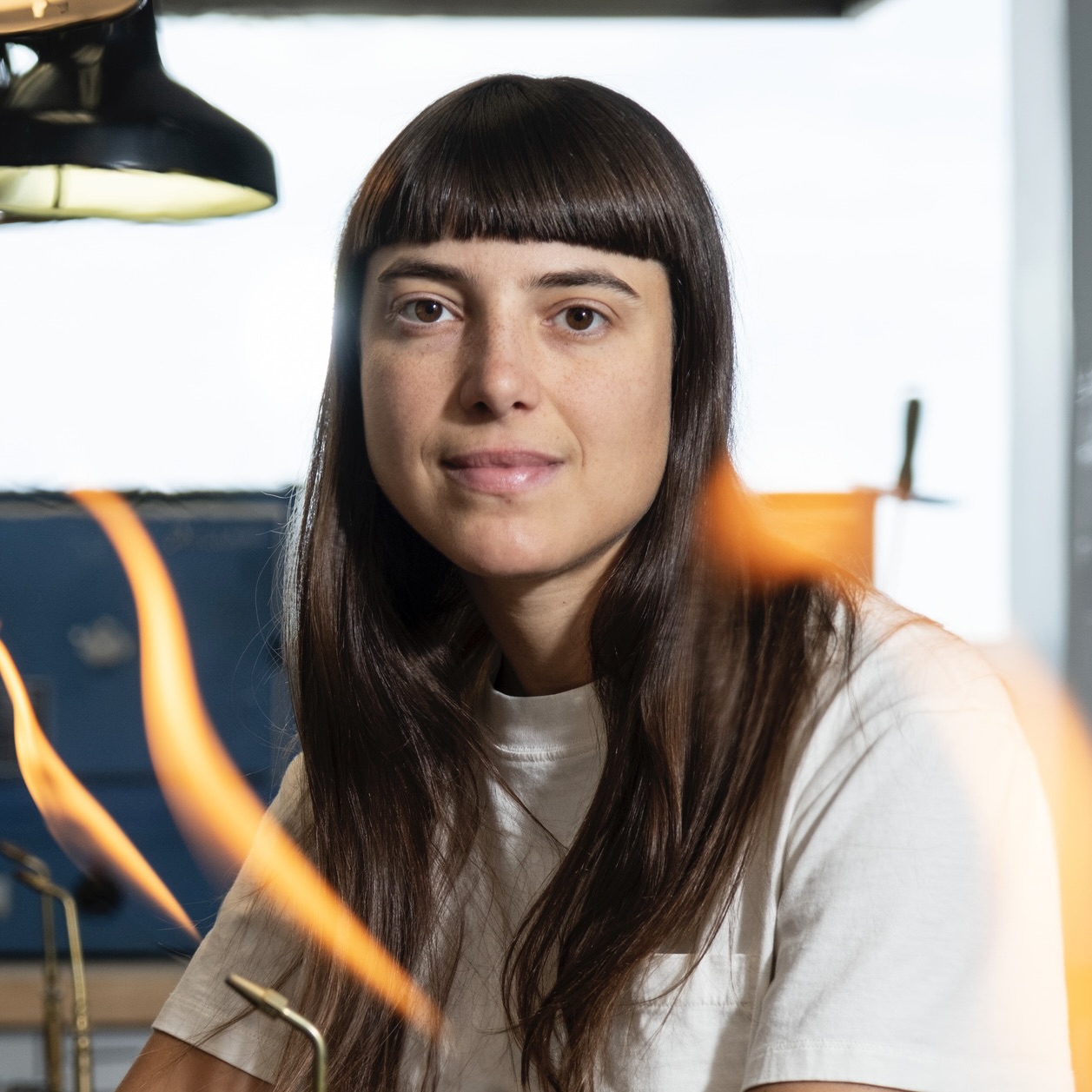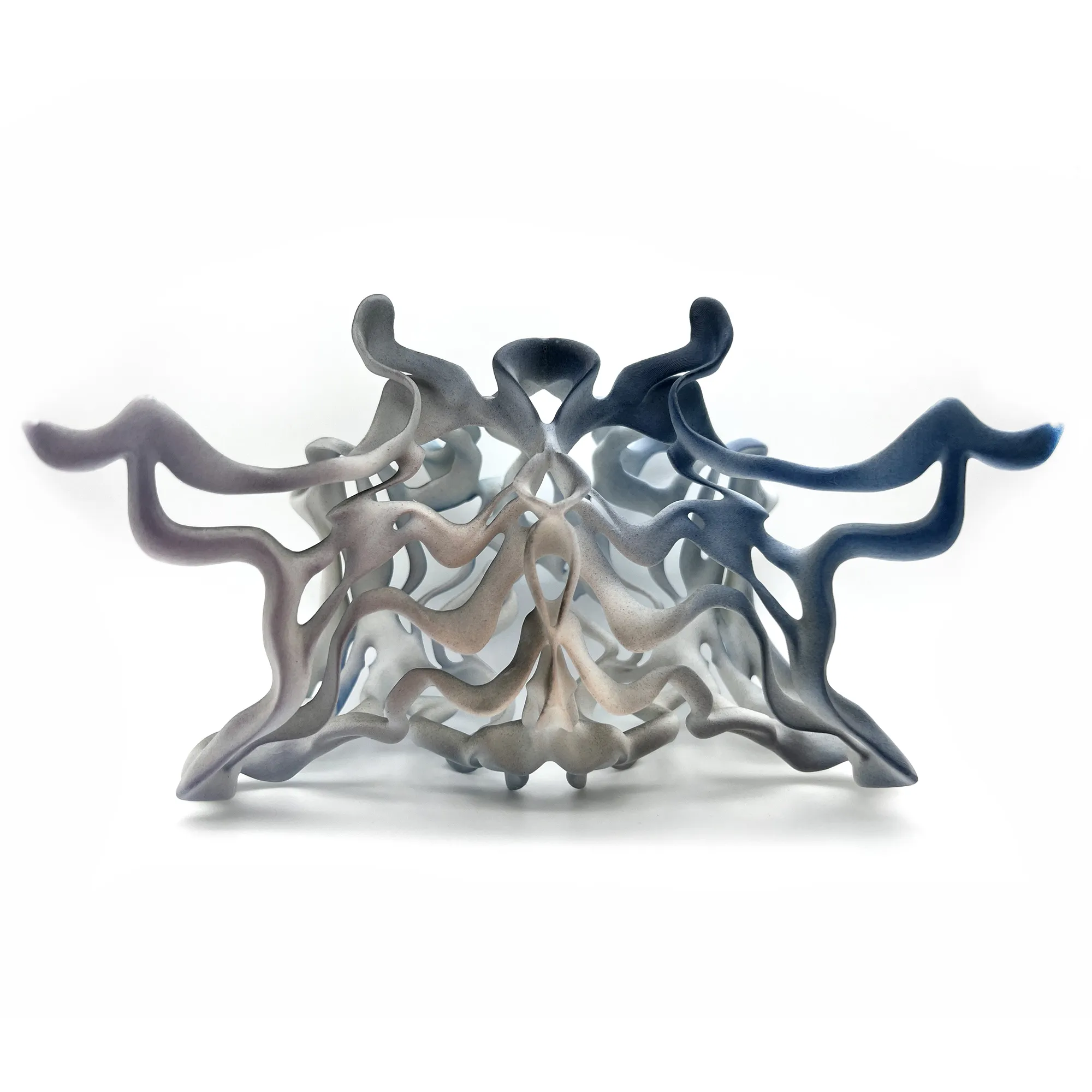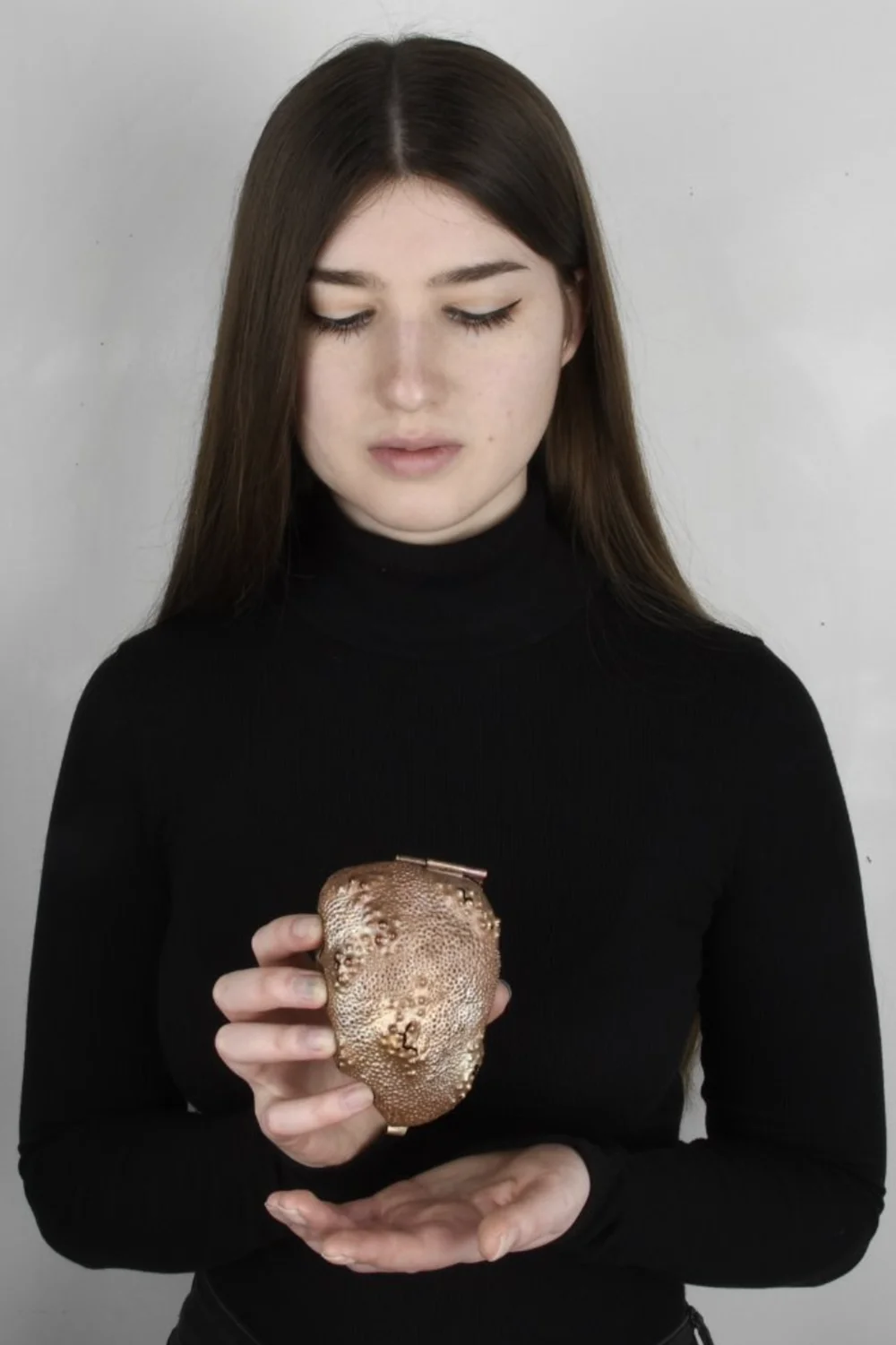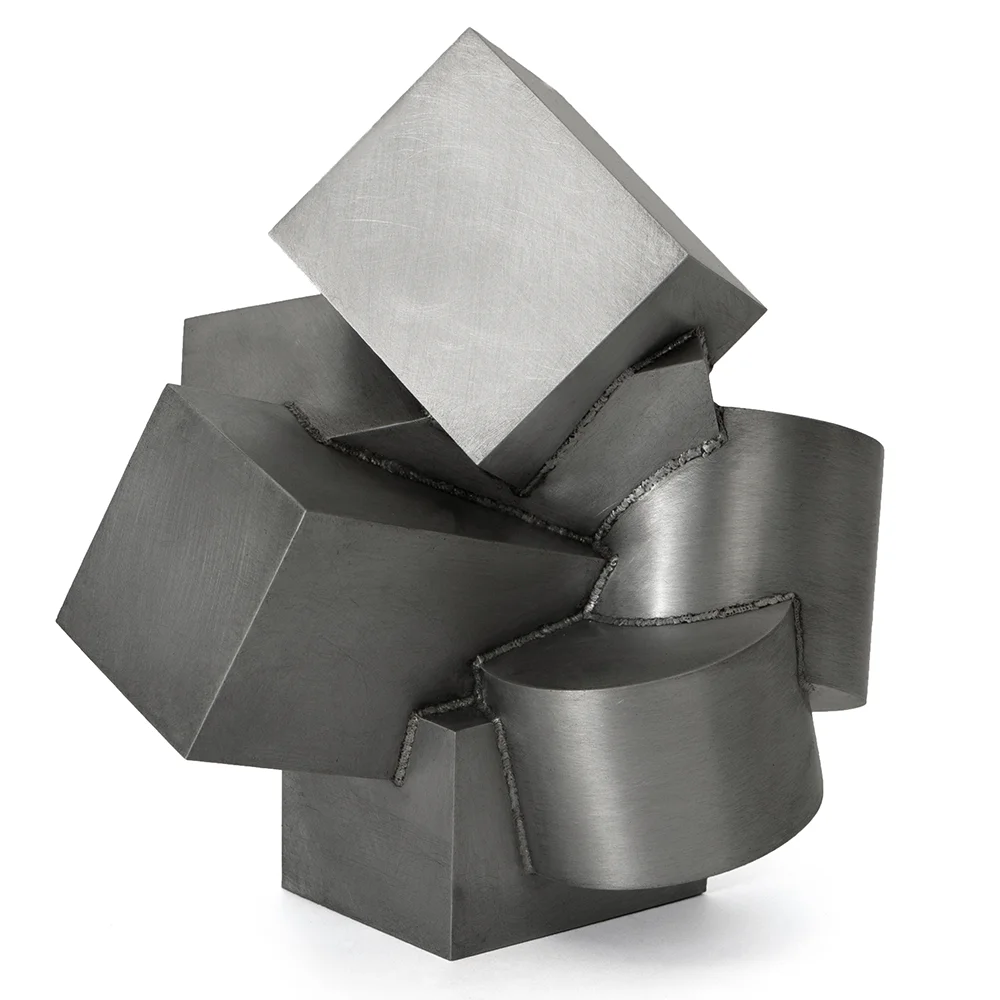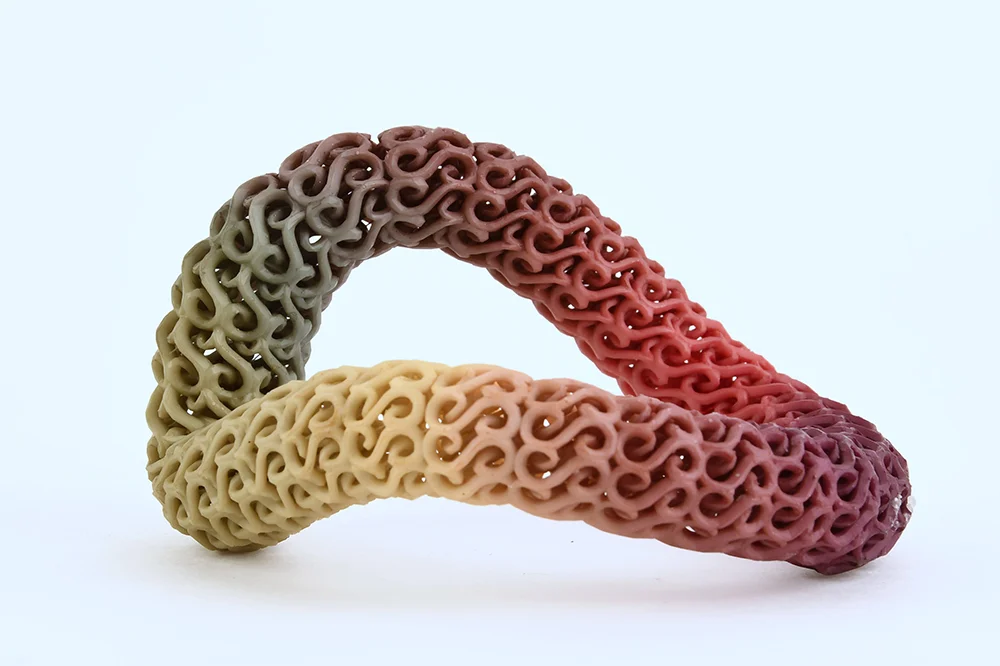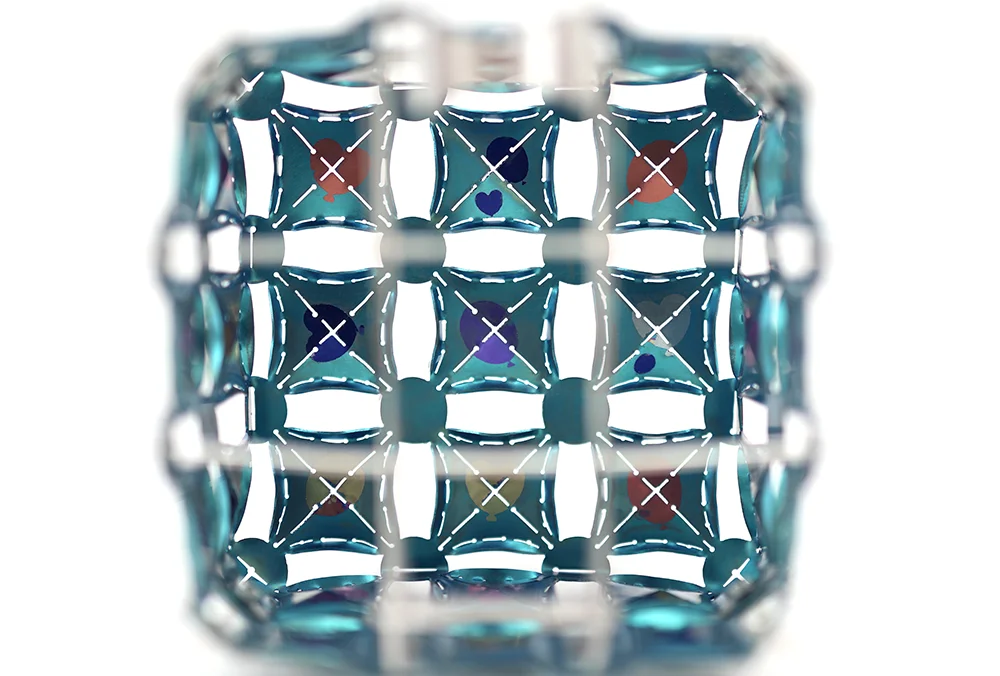Emily Cobb
MFA ‘12 | Jeweler | Educator | Digital Innovator
Emily Cobb is a leading figure in contemporary jewelry, recognized for her imaginative, emotionally resonant designs and innovative use of digital fabrication. A 2012 graduate of the MFA in Metals / Jewelry / CAD-CAM program at the Tyler School of Art and Architecture, Emily’s work seamlessly blends narrative, technology and ornamentation into intimate, thought-provoking objects.
At Tyler, Emily was among the early pioneers of integrating CAD-CAM into studio jewelry. She used 3D modeling and printing to develop fantastical forms that challenge traditional ideas about wearability and beauty. Her thesis work marked a shift in how digital tools could be used not just for precision—but for storytelling.
Emily’s work has been exhibited internationally at institutions such as the Museum of Arts and Design (New York), Galerie Marzee (Netherlands), and the Society of Arts and Crafts (Boston). Her jewelry has been featured in Metalsmith, American Craft, and 3D Printing Industry, and her pieces reside in several museum and private collections.
Today, Emily serves as an Assistant Professor of Jewelry and Metals at Massachusetts College of Art and Design, where she teaches across analog and digital practices. She is also a board member of the Art Jewelry Forum and a frequent lecturer and contributor to conversations on the future of craft, digital aesthetics, and the evolving role of the maker in the 21st century.
"Tyler’s Metals/Jewelry/CAD-CAM program was the spark that ignited my career. It provided me with the support and education needed to successfully fuse digital innovation with traditional craft, offering the foundation to grow into my role as a jeweler, designer, and now associate professor. Tyler helped me forge my path to a lifelong career in the field. Everything started there."

